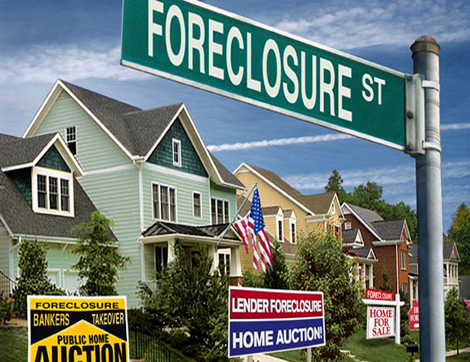
By Pat Shannan –
When legal researchers began to say around 2004 that many banks could not foreclose on a home buyer because the bankers no longer held the original notes, federal judges put a few of the people who fought their foreclosures in jail. And when an Ohio congresswoman spoke about it on the floor of the House of Representatives, she was chastised for urging her constituents to “break the law.” Today, however, courts are ruling against banks, and some home owners known to this writer have been exercising “squatter’s” rights with possession for three years or more without making a single payment.
After witnessing more than 27,000 bankruptcies in only one county of her Toledo district in 2008, Rep. Marcy Kaptur (D-Ohio) began to take notice of the number of home foreclosures that followed. After seeing the evidence exposing the scheme that none of the Freddie Mac/Fannie Mae mortgage creations in those years was on the up and up, she showed her outrage with an unprecedented speech urging all Americans to ignore any foreclosure notice and stay in their homes as squatters.
Establishment television news host Bill Moyers criticized Mrs. Kaptur on public television for encouraging people to break the law, which was merely another media subterfuge. Actually, Mrs. Kaptur was asking Americans to force the banks to obey the law.
Many people with mortgages began to take Mrs. Kaptur’s advice. Some, especially in Florida, have already done so.
“James B.” of Tampa learned from others that defense lawyers were demanding that the courts grant an order against foreclosing banks that could not produce the original note, and that federal judges were suddenly granting it. He stopped paying his mortgage in August 2008 and is still in his home. It is now worth only about a third of the $330,000 borrowed against it in 2006. “Dewey T.” of Orlando went to jail in 2005 for two years for promoting a program—called a “scheme” by federal prosecutors—that taught mortgagees how to fight with these legal tools to avoid foreclosure. The bottom line was simple: If the bank didn’t have the original, signed note because it had been sold so many times nobody could find it, the bank could not legally foreclose for non-payment.
In 2008 after his release, longtime acquaintance Dewey told AFP, “The same federal judge that sentenced me to jail has now ruled 14 times in favor of the defendant who was standing on the same statutes that we were teaching.”
How could this be? He says that at the time of his legal problems, these federal judges, who always have inside information, had heavy holdings in Fanny-Freddie stocks and had prejudicial reason to rule against him. But when the housing bubble collapsed in 2007 and exposure of the fraud was inevitable, judges sold their shares and began to rule fairly on the law again.
They continue to do so today, and in Florida, where property values have now nosedived to as little as one seventh of the mortgaged value five or more years ago, Americans are encouraged to not acquiesce to bankers’ demands, but instead put up a legal fight. It appears that now they can win, and the first step is a demand to “produce the note.”
